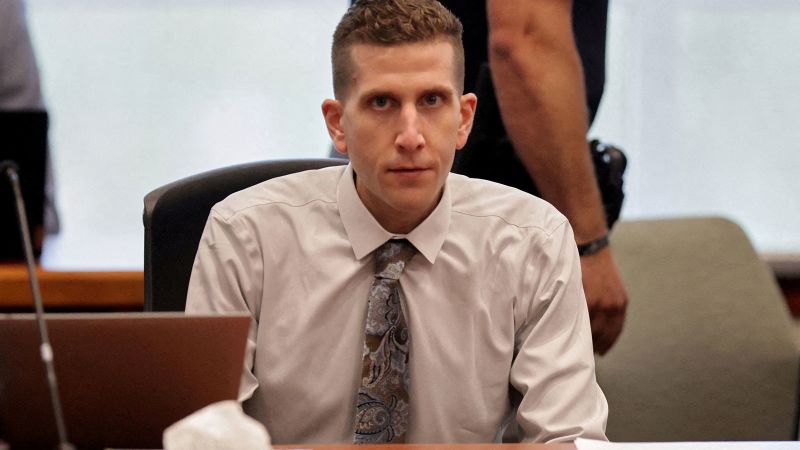In a packed courtroom in Boise, Idaho, Bryan Kohberger, a 30-year-old former PhD student of criminology, stood before Judge Steven Hippler on Wednesday, expressing no emotion as he responded affirmatively to whether he murdered four University of Idaho students. Kohberger admitted guilt to five charges, including four counts of first-degree murder and one count of burglary, entering a plea deal that eliminates the possibility of capital punishment.
The tragic incident, which unfolded in the early hours of November 13, 2022, involved the stabbings of Ethan Chapin (20), Kaylee Goncalves (21), Xana Kernodle (20), and Madison Mogen (21) at their off-campus residence in Moscow, Idaho.
CNN trial correspondent Jean Casarez, present in the courtroom, highlighted critical elements surrounding the case and the plea agreement. Prosecutors produced extensive evidence against Kohberger, including DNA from a knife sheath found near Mogen’s bed. However, the decision to reach a plea deal, despite the strong evidence, raised questions among experts.
“It’s one of the biggest unanswered questions. We don’t know why prosecutors opted for a plea,” Casarez noted. “This case was solid, and there was no established alibi for Kohberger.” The trial was moved to Boise to ensure a fair process, and concerns over judicial economy were suggested as factors in the plea.
Kohberger’s defense, which cited his autism to argue against a death sentence, ultimately led to a plea agreement where he will serve life in prison without the possibility of parole. In similar historical cases, such as with serial killer Gary Ridgway, plea deals often include conditions; however, in Kohberger’s case, there were none.
The absence of a public trial means the families of the victims may never receive answers about the motivations behind the murders, leaving many feeling unsatisfied. “They wanted answers… and those questions conceivably will never be answered,” Casarez remarked, noting varying reactions from the victims’ families.
While some expressed a sense of closure, others felt that sweeping the case into a plea deal overlooked the tragedy of the lost lives. Kohberger’s family, absent from the courtroom, requested privacy amid the distress surrounding the case.
The atmosphere during the hearing was described as tense and silent, with families watching Kohberger intently. Notably, the prosecutor, Bill Thompson, exhibited emotional disturbance while recounting the victims’ names, which drew mixed reactions from the victims’ families about the plea deal.
Looking ahead, the sentencing hearing is set for July 23, during which family members will have the opportunity to provide victim impact statements, while Kohberger may also address the court. However, in waiving his right to appeal, Kohberger has accepted a life sentence within Idaho’s prison system.
Criticism arose regarding the quick timeline of the plea deal, with some families expressing disappointment that Kohberger was not required to divulge further details about the crime. The judge acknowledged the urgency needed once the plea was proposed, indicating that rapid resolutions are not typical in similar cases.












